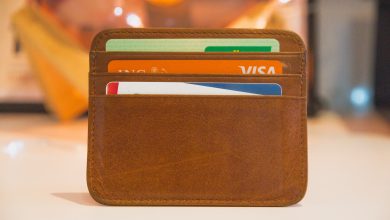Is Credit Card Piggybacking a Good Way to Build Credit?

There are several ways to build or rebuild your credit score. For example, consumers can get a secured credit card or an installment loan. Many issuers and lenders specifically cater to applicants that have bad credit. However, these ways will cost you money. Moreover, the interest rate is out of your control, alongside the credit balance that you will actually get. Because of this, credit card piggybacking can seem like a good way to build credit.
With credit card piggybacking, consumers add their names to someone else’s account, such as a family member or a friend. Both of them are accountable for making payments and using the card responsibly. In other words, each cardholders’ respective credit score goes up and down simultaneously. This approach has several benefits. Applicants can easily get approved with a joint cardholder who has strong credit. Yet it also has some downsides. In order to determine whether piggybacking is a good way to build credit or not, consumers should keep a few things in mind.
The Pros of Credit Card Piggybacking
Minimal Barriers
In comparison to its alternatives, credit card piggybacking is a good way to build credit because of its low cost and relatively easy approval requirements. A secured credit card is also within reach if you have bad credit. However, issuers will ask for an initial deposit. At times, that would be 100% of the credit card’s balance. Most of the time, the deposits start at $200 or more. Credit card piggybacking, on the other hand, may not cost you anything at all, especially if you work with someone that has a strong credit history.
Installment loans are another way to build or rebuild credit, but they also cost a notable amount. The average installment loan’s interest rate could be as high as 36%. To put it another way, borrowing $500 and $1,000 may cost you $180 and $360, respectively. Your actual interest rate depends on your credit, but lenders will certainly increase it for consumers that are looking to build/rebuild their score. Credit card piggybacking, meanwhile, secures a lower interest rate (based on the other account holder’s credit). Moreover, when two or more people are responsible for a credit card, they can split the interest payment and each of them pays less.
Unlimited Credit Balance
A large credit balance shouldn’t necessarily mean more money to spend. However, when you use a card that has a sizable balance responsibly, your credit will grow. This is important because it shows creditors and future lenders that you can handle having access to a lot of money in a reliable and financially conscious way.
Above all else, credit card piggybacking is a good way to build your credit because it minimizes the amount of “hard” checks on your report. Every time you apply for a credit card or loan, an issuer or lender will check your credit. In turn, this appears as a hard check on your credit report, which lowers your score. Consumers that have bad credit are more likely to incur the hard checks without reaping the benefits of getting approved for a loan/card (which, in its own respect, boosts your score). However, when an applicant’s name is added to an existing card holder’s account, they are almost guaranteed to be approved. Even when they open a new account, a co-applicant that has good credit is unlikely to get rejected.

The Downside
It goes without saying that the whole point of credit card piggybacking is to build credit. Because of this, it is specifically designed for consumers that have a bad credit score. However, many people may struggle to find someone that will give them access to their credit card. Keep in mind that both of the cardholders are accountable for how they use the card and the amount that they spend. Therefore, a consumer may risk jeopardizing their own credit by adding someone with a bad score. Being added as an account’s “authorized user” doesn’t suffice.
In this instance, there are two ways to approach this obstacle. First of all, if the person that you want to work with is a family member or friend, there are certain ways to earn their trust. For example, you could create a written contract or agreement to show them that you’re serious. The document would outline each of your responsibilities, such as spending limits and who pays for their own transactions. Moreover, you could give them an in-person “deposit” or offer to have them pick the credit limit on a new account.
Brokering a Joint Credit Card
The second approach entails going through businesses that match consumers with existing credit card holder to “piggyback” off. However, this, in its own respect, has its own pros and cons. It can be seen as a good way to build credit when someone can’t find a family member or friend who would add them to their account. Nonetheless, working with a stranger is also risky. They may have good credit in the present, but it’s difficult to tell what their finances will look like in a few months or years. Keep in mind that both of you are responsible for the card’s usage and payment. the co-cardholder could jeopardize your credit score if they go over the limit or pay late.
Perhaps most importantly, using a credit card piggybacking service could deprive you of certain benefits. For example, the other cardholder might, as a condition for adding you to their account, request that you never actually receive the card. In other words, you can’t access the balance. Similarly, because you pay a fee, this option isn’t much better than a secure credit card or an installment loan. Several credit bureaus warn consumers that utilizing a piggybacking service is risky. This doesn’t mean that there aren’t good credit card piggybacking services, but you should carefully scrutinized any company you go through and cardholder you work with.

Credit Card Piggybacking: A Summary
Credit card piggybacking is a good way to build credit. At the same time, it helps you save money on interest fees and deposits. Moreover, consumers can improve their score relatively quickly when they access a sizable credit balance. Keep in mind, nonetheless, that not everyone can help you in this approach. At times, the alternatives may be better, especially if you can’t find a reliable cardholder. All of these factors, though, depend on your finances, friends/family members, and personal circumstances.



